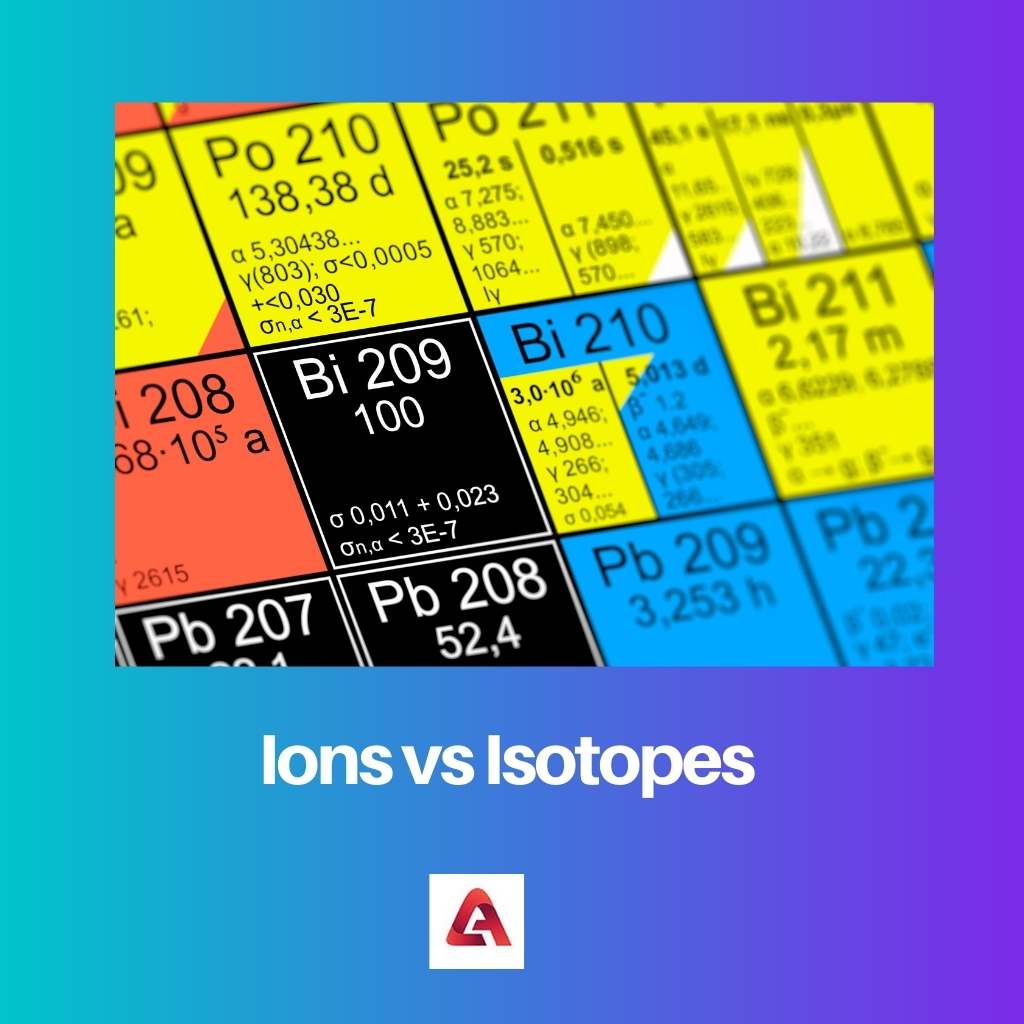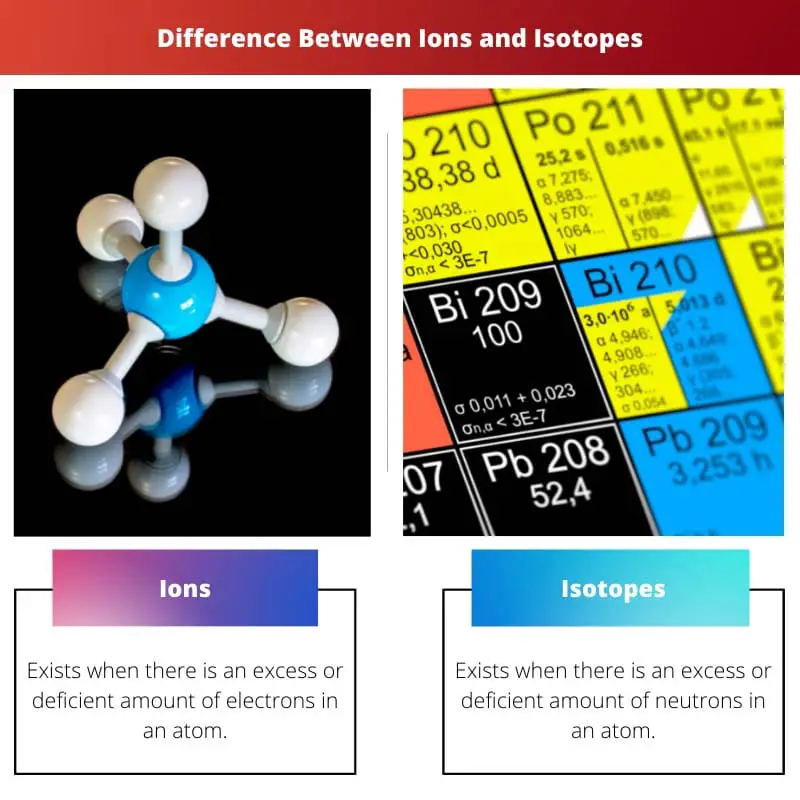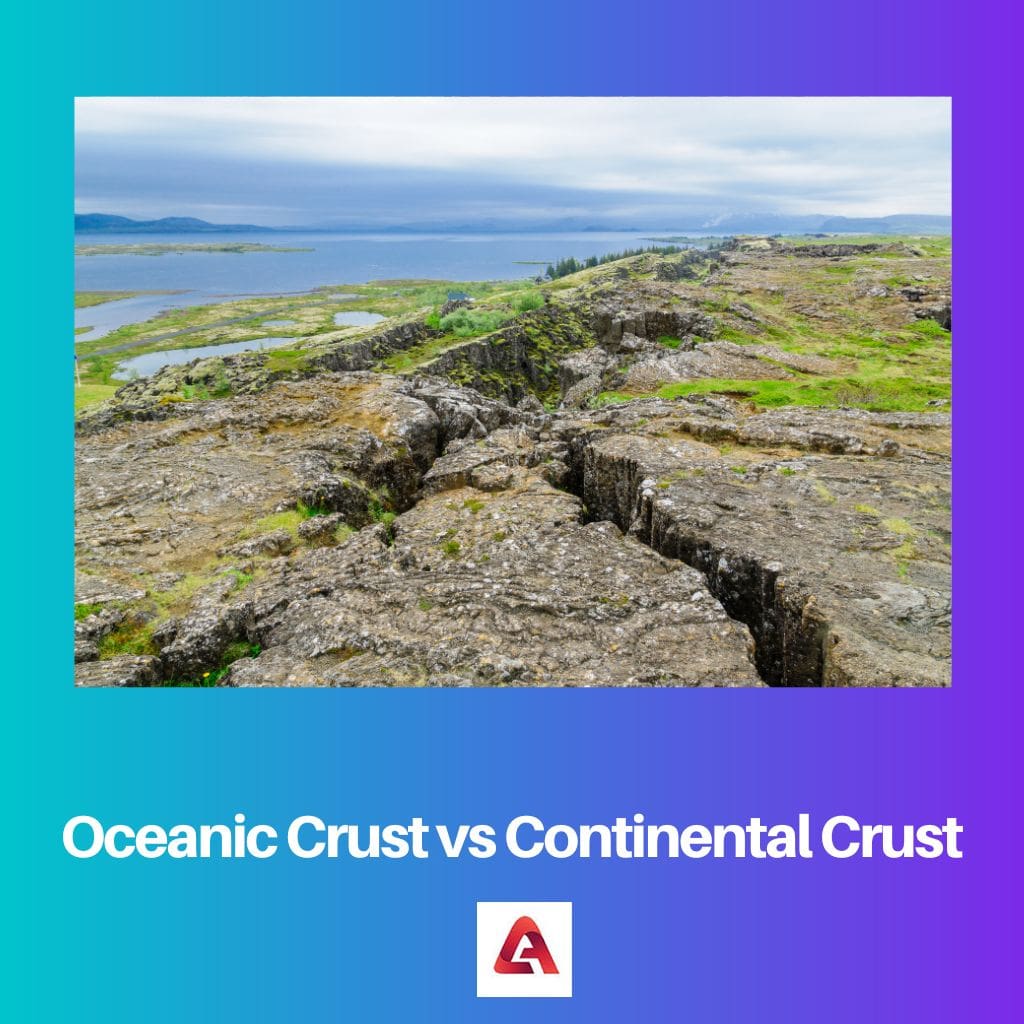The word ion refers to an atom that is either negatively or positively charged, while the isotopes of an element are different variations of its atoms. Despite being linked to the atoms within the element, ions, and isotopes differ widely in numerous ways.
Key Takeaways
- Ions form when atoms gain or lose electrons, resulting in a charged particle, while isotopes have the same number of protons but different neutrons.
- Ions exhibit different chemical properties due to their charge, whereas isotopes have similar chemical properties but different physical properties.
- Isotopes can be radioactive, emitting radiation as they decay, while ions do not exhibit radioactivity.
Ions vs Isotopes
Ions are atoms that have more or fewer electrons than protons because it has either gained or lost electrons. An ion can have a positive or a negative charge. Isotopes are atoms that are of the same element with the same numbers of protons but different numbers of neutrons in their nuclei.

The word ion refers to either negatively or positively charged atoms. They exist when electrons are insufficient or excessive in an atom. The excess or deficient amount determines the positive or negative charge of the atoms.
The number of protons in all atoms of a particular element is the same, but the number of neutrons may differ. Due to this, an element has several isotopes that have similar chemical properties and behaviors.
Comparison Table
| Parameters of Comparison | Ions | Isotopes |
|---|---|---|
| Existence | It exists when an atom has an excess or deficient amount of electrons. | It exists when an atom has an excess or deficient amount of neutrons. |
| Nomenclature | Derived from the Greek word ‘iov’ that means ‘going.’ | Derived from the Greek words ‘isos’ and ‘topos,’ meaning ‘in the same place.’ |
| Classification | They are either atomic after consisting of a single atom or molecular after consisting of several atoms. | They are mainly classified into two types- unstable and stable. |
| Definition | Refers to the negatively or positively charged atoms. | Refers to the different variations of atoms in an element. |
| Named by | English physicist Michael Faraday. | Suggested by Margaret Todd to Frederick Soddy. |
What are Ions?
The word ion refers to an atom that is either negatively or positively charged, and the word originated from the Greek word ‘iov,’ meaning ‘going.’ Michael Faraday, an English physicist, coined the term.
The inadequate or excess amount of electrons in an atom determines the positive and negative charge of the atom. Therefore, the atom will have a positive charge when there are excessive electrons.
The ions are largely classified into atomic and molecular. Ions that consist of a single atom are categorized either as atomic or monoatomic ions.
What are Isotopes?
The word isotope of an element refers to the different variations of atoms, and the word originated from the Greek words ‘isos’ and ‘topos’, meaning ‘in the same place.’
Isotopes mainly exist when an atom has an excessive or inadequate amount of neutrons. The number of protons in all atoms of a particular element is the same, but the number of neutrons may differ.
The Isotopes are significantly categorized into stable and unstable isotopes. Therefore, stable isotopes are naturally the ones that do not decay.
Main Differences Between Ions and Isotopes
- Ions may be either molecular or atomic, whereas the isotopes may be unstable or stable.
- Ions mainly exist when an atom has an inadequate or excessive amount of electrons. On the other hand, Isotopes mainly exist when an atom has an excessive or inadequate amount of neutrons.





